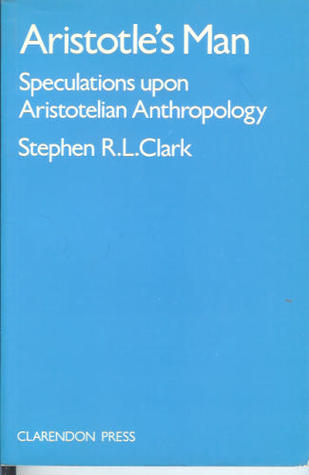

 |

|

The average rating for Aristoteles man based on 2 reviews is 5 stars.
Review # 1 was written on 2016-10-15 00:00:00 Michael Garcia Michael GarciaA nice look at how Nothingness was viewed by Kierkegaard, Heidegger, & Tillich |
Review # 2 was written on 2015-06-10 00:00:00 John Kinstler John KinstlerA Thinking Person's Guide to 50 Years of British Anthropology I first began to study anthropology 57 years ago, arriving at university never having heard of the subject. I wound up as an anthropologist, but also something of an area specialist (South Asia). I never had pretensions to be a theorist, nor have I ever aspired to expertise in kinship studies. My training was under American anthropologists to be sure, but they encouraged us to read and think about British and French scholarship as well. I never, however, felt that any one of these three schools had all the answers. One needed to develop an understanding by reading, doing field work, and thinking for yourself. British anthropology, from 1922 to 1972, as covered in Kuper's book, took a harder line. You focussed on the issues laid down by the leading lights, you went to study in "the colonies", mainly Africa, and wrote within the doctrine---or you got nowhere. It was another age. The chief figures that dominated the field in Britain---Malinowski, Radcliffe-Brown, Evans-Pritchard, Fortes, Gluckmann, and Leach---published any number of brilliant theoretical works, but allowed little deviation from the established topics. Functionalism (human behavior is guided by utilitarian or `functional' reasons) gave way to structuralism (analysis of socio-political structure--especially kinship--can explain human behavior/culture), then the field began to splinter a bit. The linguistic and psychological concerns of the Americans and more so the sociological and mythological analyses of the French (Durkheim, Mauss, Levi-Strauss) finally did influence the British anthropologists. The full story of the twists and turns of British anthropological theory await you in ANTHROPOLOGISTS AND ANTHROPOLOGY along with a good amount of personal detail about the main protagonists. Kuper's book is not an easy read. It is academic, but clear. If you have no prior acquaintance with anthropology, this is definitely not the place to begin. However, if you are teaching Anthropology or if you wish a brilliant summary of the field's history in the UK, or if you just want to review your understanding of developments as I did, this book is well-worth reading. |
CAN'T FIND WHAT YOU'RE LOOKING FOR? CLICK HERE!!!